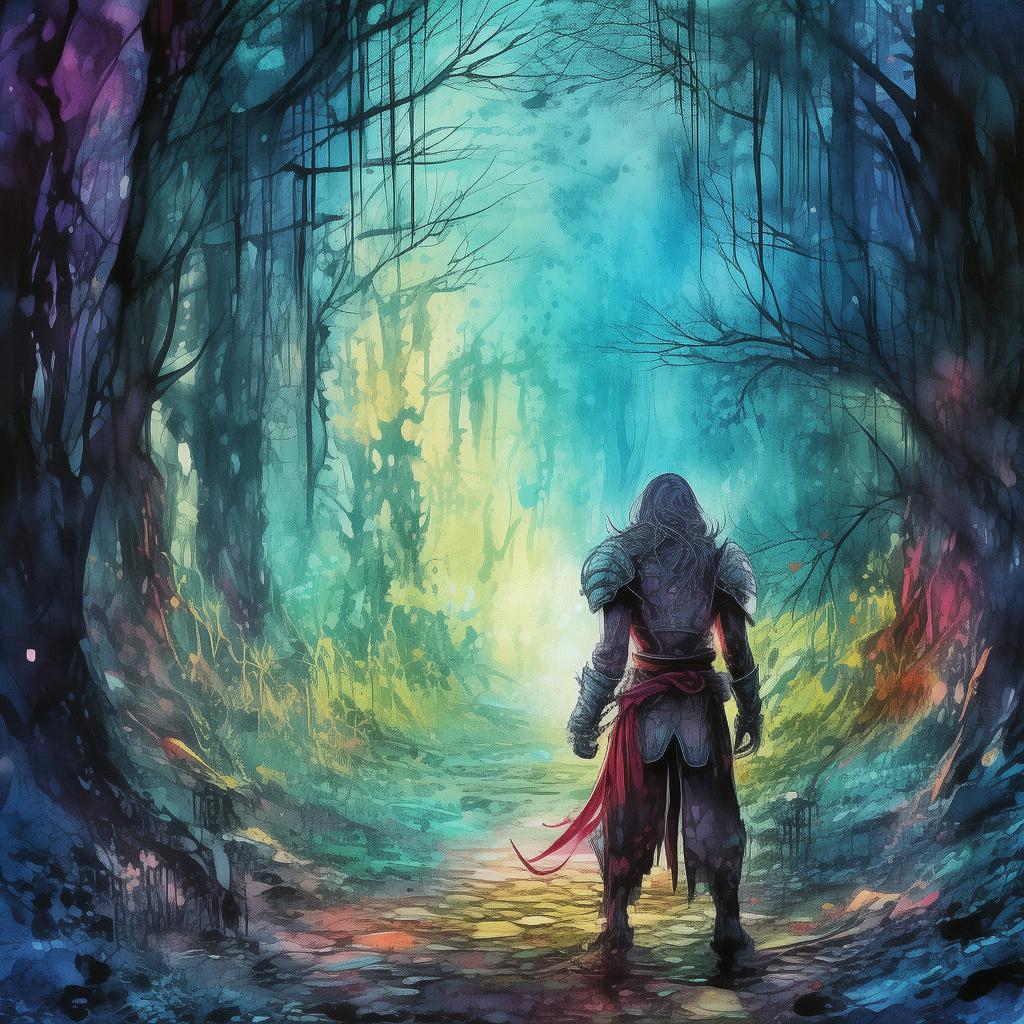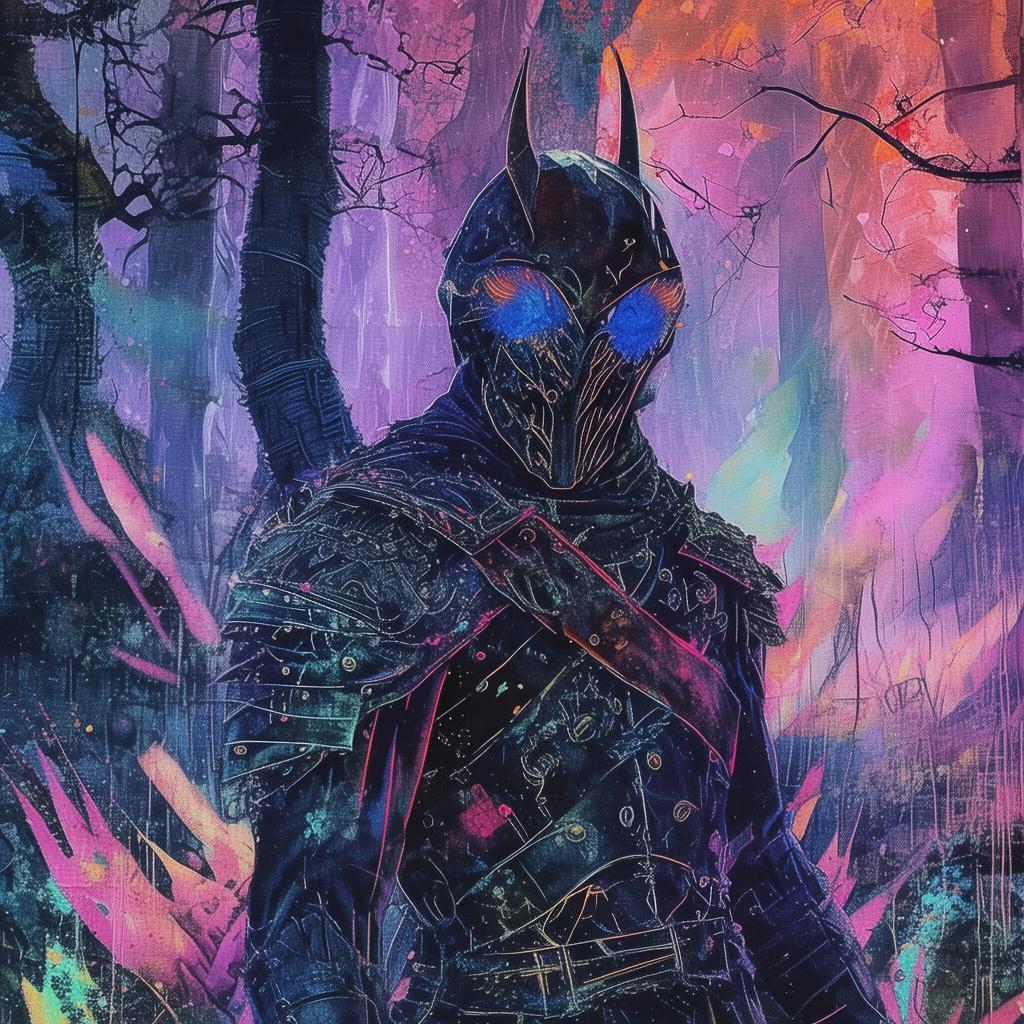The Reflection of the Fated Mountain
The sky above was a tapestry of swirling clouds, as if the gods themselves were weaving the fate of the world. Below, the mountains stood as ancient sentinels, their peaks piercing the heavens like the spears of giants. In the heart of this primordial landscape, there was a giant, his form as imposing as the mountains themselves, but his eyes held a depth that spoke of a soul far more complex than his physical presence.
The giant, known to the people as Grath, had always been a source of awe and fear. His size was legend, and his wisdom was as vast as the oceans. Yet, even Grath found himself at the edge of a great philosophical chasm, questioning the nature of his existence and the purpose of the world he lived in.
It was during a time of drought that Grath first felt the weight of his contemplations. The people were suffering, their crops withering, and their hope fading like the morning mist. Grath, ever the philosopher, saw this as a sign. He climbed to the highest peak, where the air was thin and the whispers of the wind carried the secrets of the ages.
From this vantage point, he gazed upon the world. Below, the land was a mosaic of life and death, each creature fighting for survival. He saw the birds soaring with grace, the animals foraging for food, and the humans toiling in the fields. But what he noticed most was the way they perceived their own existence.
Grath pondered the nature of perception. What if the world was not as it appeared? What if the very essence of reality was a construct of one's own beliefs and perceptions? He began to reflect on his own life, his own size, and the power he held over the lives of the people.
One day, while meditating under the vast sky, Grath had a revelation. He realized that the world was not just a place of existence, but a place of endless possibility. The power to shape reality lay not just in the hands of the gods, but in the hearts and minds of all living beings.

Grath descended the mountain, his heart filled with a newfound purpose. He gathered the people, and with a voice that could shake the very mountains, he spoke of his realization. "The world is not static," he declared. "It is a mirror, reflecting our own inner reality. If we change our perceptions, we change the world."
The people were skeptical at first, but Grath's words took root in their hearts. They began to see the world in a new light. The drought lifted, not by the intervention of the gods, but by the change in the people's perceptions. They saw the rain as a gift, a sign of the world's responsiveness to their thoughts and actions.
Grath, now known as the Fated Mountain, continued to live among the people, his presence a testament to the power of perception. He taught them to look beyond the surface, to see the world as it truly was—a living, breathing entity that responded to the energy of their thoughts.
Years passed, and the people flourished. The land became more fertile, the animals more content, and the humans more at peace. The Fated Mountain watched over them, a silent guardian of their newfound wisdom.
But Grath's journey was not over. He continued to reflect, to ponder the nature of existence. He saw the world not just as a place of endless possibility, but as a place of endless potential. And as he gazed upon the world, he knew that his own reflection was just one among countless others, each with the power to change the world.
And so, the legend of the Fated Mountain lived on, a reminder that the power to shape the world lies not just in the hands of the gods, but in the hands of every living being, each one a reflection of the infinite possibilities that lie within.
Grath, the Fated Mountain, had shown the people that the world was not just a place to exist, but a place to be created. And with this knowledge, they changed the world, not by force or magic, but by the power of their perceptions.
✨ Original Statement ✨
All articles published on this website (including but not limited to text, images, videos, and other content) are original or authorized for reposting and are protected by relevant laws. Without the explicit written permission of this website, no individual or organization may copy, modify, repost, or use the content for commercial purposes.
If you need to quote or cooperate, please contact this site for authorization. We reserve the right to pursue legal responsibility for any unauthorized use.
Hereby declared.









